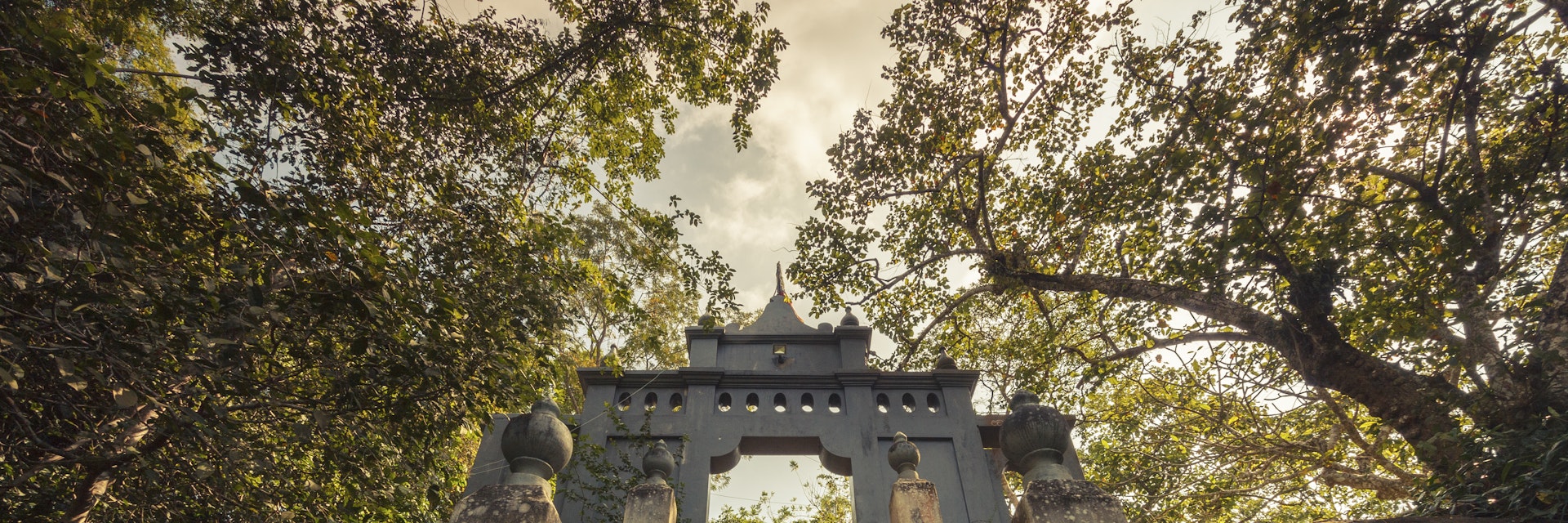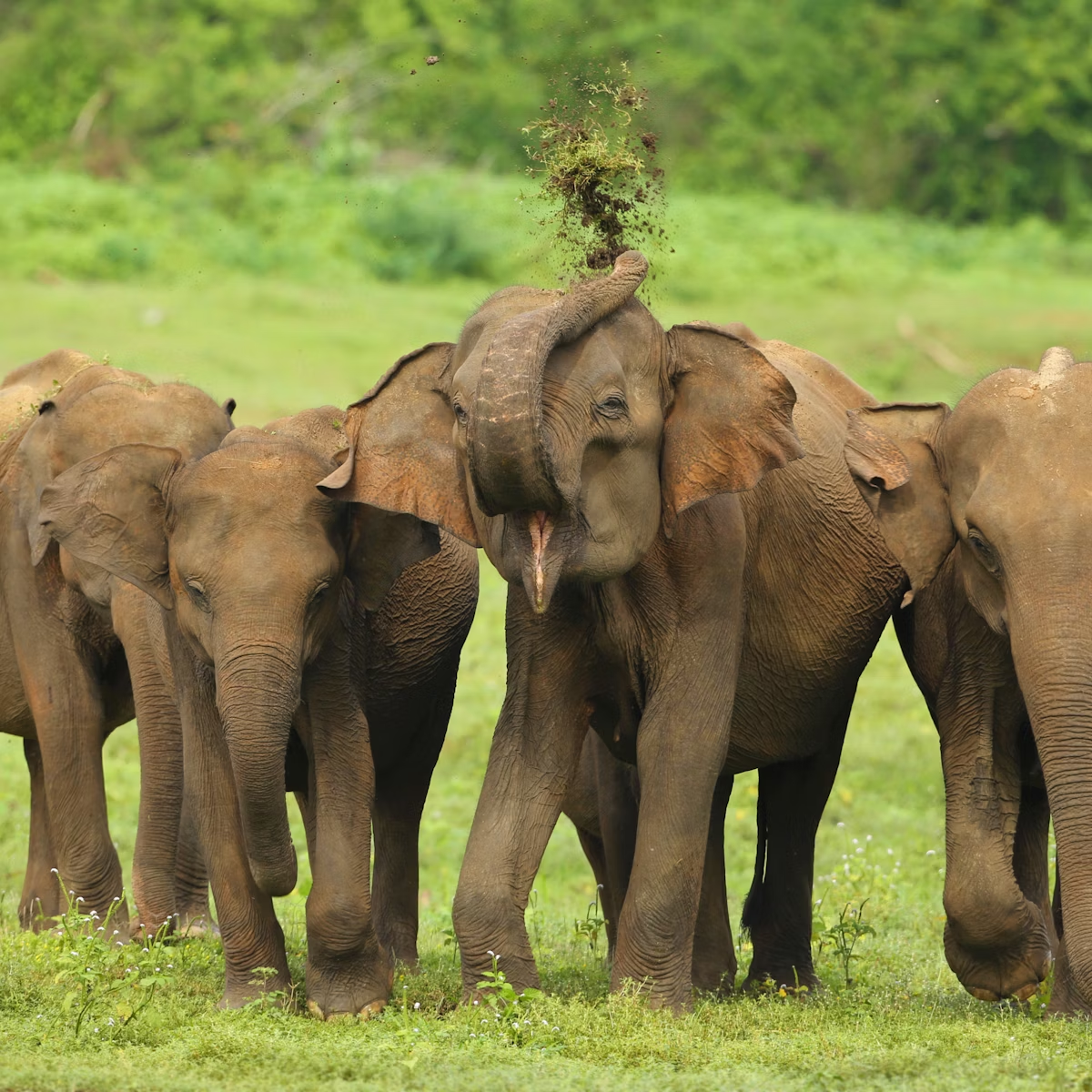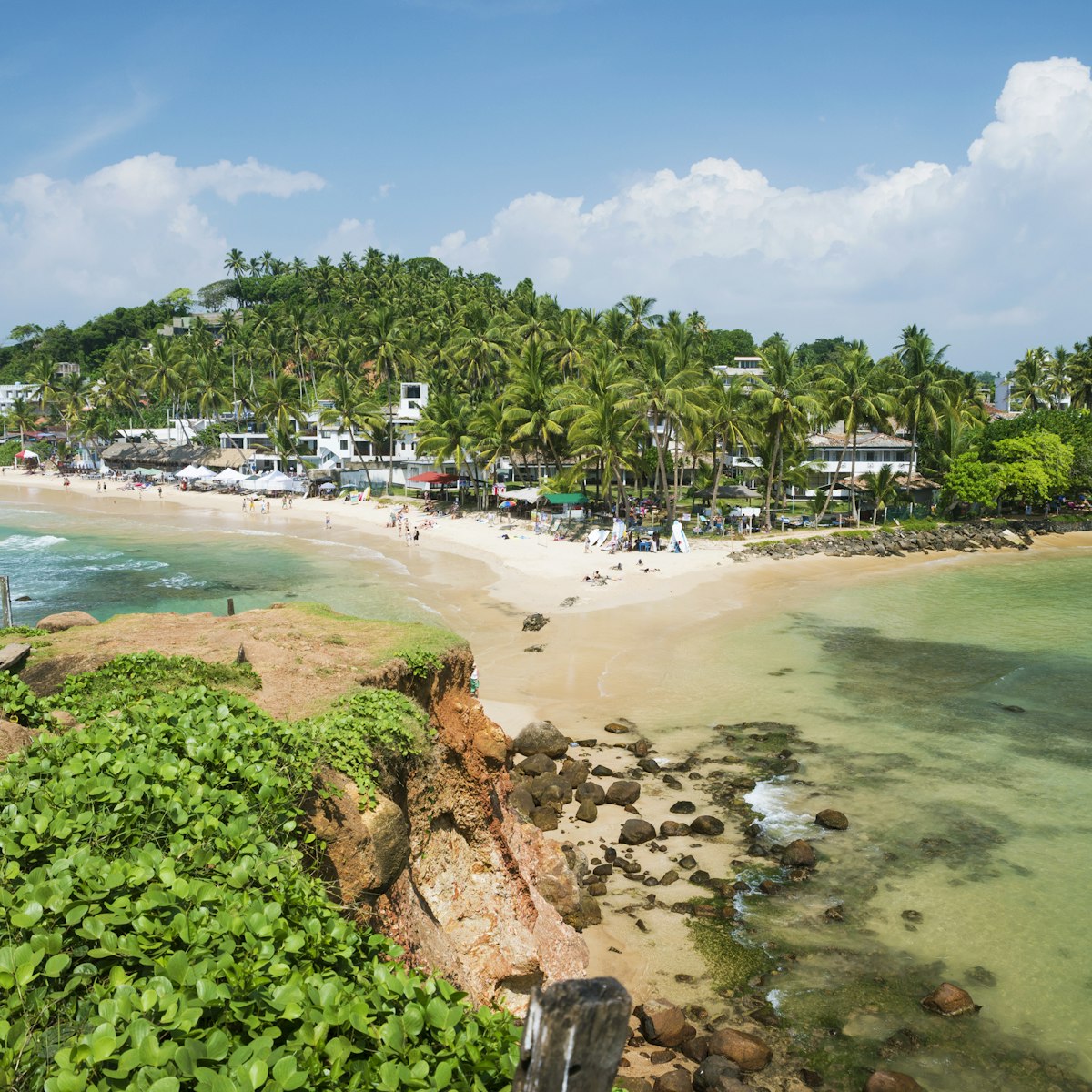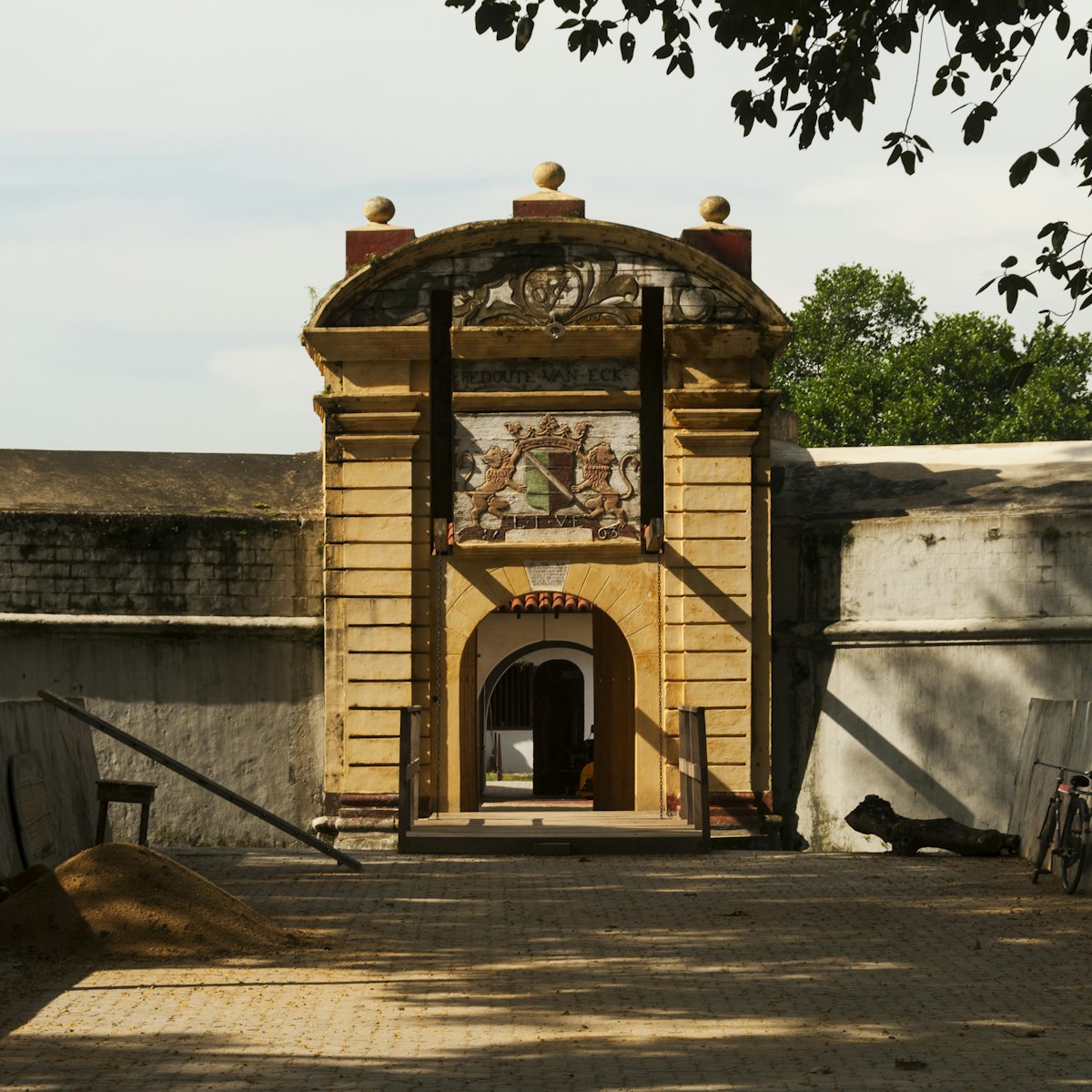Dangling off a rocky crag 16km northwest of Tangalla and nestled away among a green forest of coconut trees are the peaceful rock temples of Mulkirigala. Clamber in a sweat up the 500 or so steps and you’ll encounter a series of seven cleft-like caves on five different terraced levels. Housed in the caves are a number of large reclining Buddha statues interspersed with smaller sitting and standing figures.
Vying with these for your attention are some fantastical wall paintings depicting sinners pleasuring themselves with forbidden fruit on Earth and then paying for it with an afterlife of eternal torture – apparently it was worth it! Further on up, and perched on top of the rock some 206m from the base, is a small dagoba with fine views over the surrounding country.
Temples, in some form or another, have been located here for over 2000 years, but the current incarnations, and their paintings, date from the 18th century. Nearby is a Buddhist school for young monks.
Pali manuscripts found in the monastic library here by a British official in 1826 were used for the first translation of the Mahavamsa (Great Chronicle), which unlocked Sri Lanka’s early history to the Europeans. For more detail on the site and a series of photographs, see www.srilankaview.com/mulkirigala_temple.htm.
Mulkirigala can be reached by bus from Tangalla via either Beliatta or Wiraketiya. (Depending on the departures, it might be quicker to go via Wiraketiya than to wait for the Beliatta bus.) A three-wheeler from Tangalla costs about Rs 1800 for a return trip.








